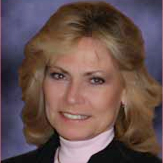
Serenity Mental Health Services utilizes the theories of Alfred Adler and Carl Jung and the life experiences of Jesus Christ to provide a foundation for the change process identified above. The history of Christ’s own humanity provides a model as we attempt to understand and counsel the yin and yang of life’s transitional experiences.
Carl Jung and Alfred Adler speak of the process of individuation in a similar way as I speak of this spiritual transitioning process one experiences as they gain a socially interested lifestyle. As the individual becomes more aware of one’s Self the concept described by Carl Jung as Individuation, that deep part of us that can only be hinted at by dreams and intuitive symbols becomes more available. As important as awareness is, it cannot describe completely the individuation process. One’s energy and creativity determine the degree of transformation and socially interested lifestyle resulting from Individuation.
Although not Christian in any dogmatic way, Adlerian and Jungian psychology, use powerfully the images and symbols of Christianity in a way that links in depth psychology with spirituality. In point of fact, those who seek a deeper identity as God’s blessed child can benefit from the exploration of individuation along with traditional spiritual formation practices.
In many small and large areas of life a central metaphors of the Christian life that speaks of death and resurrection, is experienced, this is especially so with our spiritual transition. It is our human brokenness and the desire for relief that stimulates movement as we mysteriously transition toward wholeness and ultimately grow up into God’s image. In point of fact, it is these experiences of grief, heartache and ultimate healing that are the building blocks for the spiritual transition.
Definitions of terms:

SPIRITUAL: It is not uncommon for us to lack awareness of the spiritual depth within us and the divine vibration that sustains and invites us toward wholeness in our lives. The relationships that have to do with the deepest experiences of our existence are spiritual.
LIFE: The God-spark that exists within all of us defines our spiritual life. Life is all that we are, have been or hope to become. Jesus Christ, the original counselor guides us and represents the greatest example of a whole, individuated, socially interested life style.
TRANSITIONS: The spiritual condition where our former set of understandings and practices no longer seem to connect us with God creates a crisis. This crisis is not to be feared because it is actually an opportunity and a natural rhythm that requires a transition.
SPIRITUAL LIFE TRANSITIONS: Our humanity requires us to encounter change due to the natural rhythms of life. We must embrace the natural rhythms as well as those unexpected changes much like a caterpillar does as it transitions into a butterfly.

This process of change is often thought of as starting with a new beginning, but to do so leaves out the important early memories and beliefs that need to be examined in order to gain the wisdom intended in the life experiences.
You do not just sit down one day and decide to individuate. In fact it is natural to struggle as we resist moving from the life of a caterpillar to embrace the darkness that comes as we approach process of transforming into the individuated self.

Not unlike the caterpillar and other creatures of nature the experience of transition can be filled with times of darkness and grief as one becomes a butterfly. This ambiguous state may bring on depression. This depression and subsequent suffering can trigger a wondering of how and why God has forsaken us.

This process of spiritual transitioning has a long history. The Christian tradition speaks of it in the story of Jesus as he is compelled to face his desert which requires a spiritual, emotional and mental transition. As he emerges from this darkness God’s grace, which is ever present, begins to emerge into a new consciousness.

The process of working with another person in the psychological, mental and spiritual transformation project of life is referred to as counseling. The primary role of the counselor is to listen with the ear of the heart. The counselor uses her/his intuitive sense and open heart to listen for the still small voice of God’s Spirit. We rely on God’s grace as we approach this humbling mystery of spiritual transitioning.

God’s presence in our lives are defined and represented in the quite moments of meditation as we gain understanding and learn from these transitions. Social Interest and the individuation process demands a life time of opening up to the mystery’s of the Self. This in turn will provide a deepening and loving relationship with God and your fellow man thus a socially interested lifestyle.
The counselor is trained to maintain helpful boundaries that support the spiritual, mental and emotional healing process as the individual finds him/herself. Although the relationship between the counselor and the counselee can be friendly it is not what we typically think of as friendship.
Alfred Adler (1938) in a late work titled “Social Interest: A Challenge to Mankind” discusses the subject of metaphysics where he integrates Jan Smuts’ evolutionary holism with the idea of teleology and community: “sub specie aeternitatus”. Adler argues his vision of society: “Social feeling means above all a struggle for a communal form that must be thought of as eternally applicable… when humanity has attained its goal of perfection… an ideal society amongst all mankind, the ultimate fulfillment of evolution.” (p. 275). Adler follows this discussion with a defense of metaphysics:
“I see no reason to be afraid of metaphysics; it has had a great influence on human life and development. We are not blessed with the possession of absolute truth; on that account we are compelled to form theories for ourselves about our future, about the results of our actions, etc. Our idea of social feeling as the final form of humanity – of an imagined state in which all the problems of life are solved and all our relations to the external world rightly adjusted – is a regulative ideal, a goal that gives our direction. This goal of perfection must bear within it the goal of an ideal community, because all that we value in life, all that endures and continues to endure, is eternally the product of this social feeling.” (Adler, 1938, pp. 275-276).

This social feeling for Adler is Gemeinschaftsgefuehl, a community feeling whereby one feels they belong with others and have also developed an ecological connection with nature (plants, animals, the crust of this earth) and the cosmos as a whole, sub specie aeternitatus. In part the position Adler has taken regarding a metaphysical and spiritual point of view to support his theories has provided me with a foundation to my own counseling approach. Adler’s theory also provides significant space for the dialectical humanist (modernist) and separately the postmodernist to explain the significance of community and ecology through differing lenses. This allows for the foundation of change to be applied to many cultures and belief systems.

Diana Smith, PhD, LPC-MH owns and operates Serenity Mental Health Services and is licensed by the National Board of Certified Counselors. License number is LPC-MH2025 and she follows the ethical guidelines described by the NBCC found at their web site www.nbcc.org/webethics2. Diana is a member of the National Board for Certified Counselors, Certification Number 43911. In addition, she is also a member of the American Counseling Association, Member ID# 5140627. Online counseling can help you right now. Research has made it clear that this manner of offering therapy is effective and those who’ve experienced it have said they would seek it out again.
Dr. Diana is an APA (American Psychological Association) EMDR (Eye Movement Desensitization and Reprocessing) approved Therapist in Training.